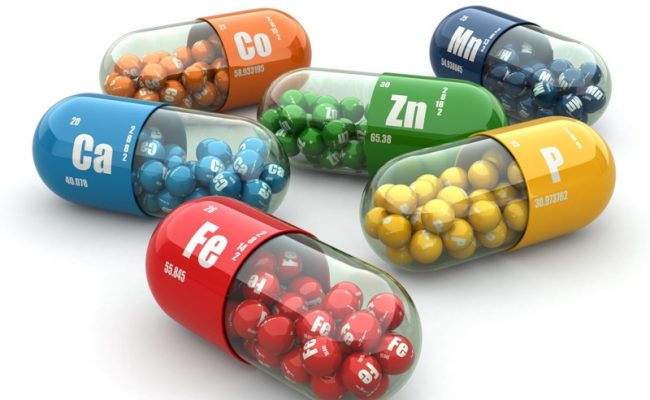
Taurine is considered a non-essential amino acid. The body uses essential and nonessential amino acids to build proteins in the body. A non-essential amino acid means the body can make these amino acids, but essential amino acids have to come from the diet.
Does taurine comes from bull semen?
Many people believe that taurine in energy drinks may come from bull semen, but this is not true. Taurine was first originally isolated from the digestive tract of a bull, but it can now be made synthetically.
Taurine can be made from the essential amino acid cysteine (1). Taurine is also found in food like meats, fish and breast milk (2).
Therefore, people eating meats or fish will get taurine in their diet. If not, their body should be able to make taurine without a problem.
According to Mayo Clinic (3), taurine is necessary for neurological tissue, may have an antioxidant role and can help balance the water and mineral level in the blood.
Because of these functions, taurine is concentrated in the brain, heart and blood cells. It is also abundantly found in muscles.
Taurine can be a supplement for athletic performance or recommended for certain medical conditions.
Before taking any supplement, speak with your healthcare team. Taurine may be beneficial for some health conditions, and can be considered safe at a moderate dose for healthy adults.
However, not all research has shown a positive role for supplementing with taurine. Also, there is no research looking at long term supplementation, especially at high doses, and safety.
Taurine and exercise
A 2009 study (4) with rats concluded that administering taurine during exercise in rats reduced muscle fatigue.
Other research studies have also shown a benefit with taurine supplementation and exercise performance. However, authors from a 2011 study (5) suggest the mechanism for any benefit of taurine and exercise is not completely understood.
A 2013 study (6) concluded taurine supplementation may decrease muscle damage during exercise which may be one reason for why taurine may be advantageous for sports performance.
While there are a few studies, mostly in rats, suggesting taurine supplementation may have beneficial role for exercise, WebMD (7) suggests there is insufficient evidence for taurine benefiting exercise performance.
Taurine and heart health
A proposed benefit of taurine may be for improving heart health. There is some evidence to suggest supplementing with taurine may help with congestive heart failure.
Some research has shown taking 2-3 grams of taurine at a time for 2-3 times per day may improve heart function in people with congestive heart failure.
This finding was found in participants who took taurine for 6-8 weeks, and the benefit may continue longer if taurine is taken.
Before taking taurine though, speak with your health care provider. Taurine may interfere with some medications and should not be used in place of medications or medical advice.
Taurine and liver function
Webmd also suggests taurine may be possibly beneficial for liver function. There is some evidence to suggest taking taurine may improve liver function in people who have hepatitis.
If a healthy adult takes taurine, will it benefit their liver function? Probably not, but more research is needed.
What is taurine in energy drinks like Red Bull?
Taurine can be a popular ingredient in energy drinks or supplements focused on mental function.
Why?
One of taurine roles in the body is to help neurological tissue, and taurine is concentrated in nerve tissue.
However, will getting extra taurine really help your brain?
More research is needed on the effects of taurine and mental health. However, some research has shown when taurine is taken in conjunction with caffeine and B vitamins (like from Red Bull® or other energy drinks), it may help attention.
However, Web MD still concludes there is insufficient evidence that taurine has an effect on memory or mental health.
Where does the taurine come from in energy drinks?
Taurine is found in animals and human intestines as well as muscles. Taurine used in most supplemental products, like energy drinks, are made synthetically in labs.
There was concern that taurine in energy drinks may come from bull semen, but according to Snopes.com (8), these claims are false.
Taurine was first originally isolated from the digestive tract of a bull, but it can now be made synthetically.
Remember you can get taurine naturally in the diet and your body can make taurine. Therefore, supplementation is not necessary.
Recommended levels of taurine
There isn’t a firm upper tolerable limit for taurine, especially from food. However, as with any supplement, be wary of getting too much of one nutrient.
Mayo Clinic (9) suggests around 3,000 mg of taurine per day is safe for most healthy people.
Also, keep in mind not much is known about supplementing taurine long term.
Taking taurine may be contraindicated for some medications or medical conditions, so always consult with a healthcare professional before taking taurine supplement.
Conclusion
Taurine is an amino acid, a building block for protein. Specifically, taurine is mainly used for muscle cells, nerve tissue and in the blood.
Like all amino acids, it has multiple functions in the body. It comes from food such as animal meats and fish. It can also be made in a laboratory for supplemental products.
Taurine is safe to consume from foods and may be safe from supplements, up to 3,000 mg per day for short periods of time.
Taking higher doses may be helpful for some medical conditions, but it should be taken under medical guidance. Taurine may be beneficial for heart and liver function.
Supplements with taurine could have numerous health claims, but remember there is limited research with health benefits and taurine.
More research is needed for further clarification on supplemental taurine and how it effects overall health.
Some, but not all, research has suggested there may be a way taurine lowers muscle fatigue.











Marcus Flores says
Dear Holly, i enjoyed your article. May i respectfully ask if taurine interacts adversely, or be dangerous, with amiodarone + xarelto, especially since the latter is a relatively-new blood-thinner? Many thanks for any attention you may decide to give to my query. Sincerely, marcus.